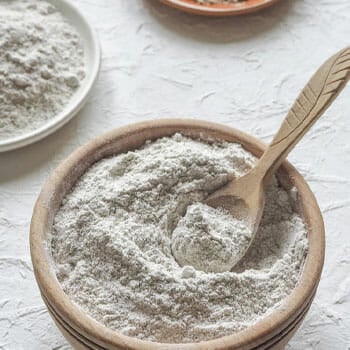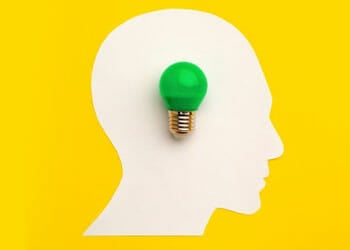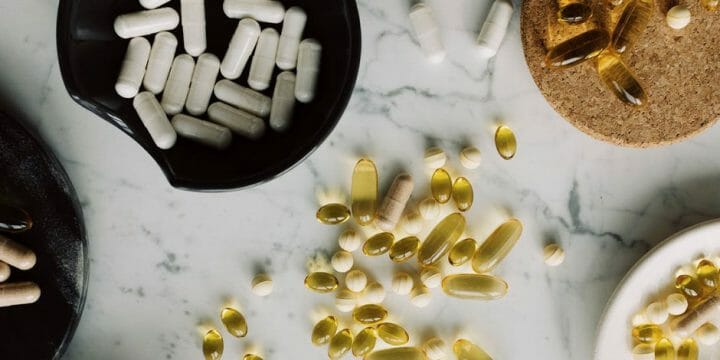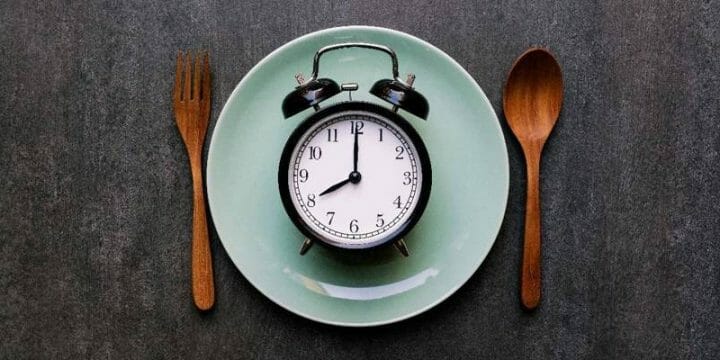With over ten years of experience as a fitness coach, I've learned that the optimal time to take Ashwagandha is subjective and depends on individual fitness goals.
Whether it's for relaxation, managing insomnia, or even as an aphrodisiac, delving into the science and evidence supporting its effects is worthwhile.
Our team of experts dedicated hours to research this herb, aiming to comprehend its nature and mechanisms to assist our clients in enhancing their workout performance.
Read on to learn more.
Quick Summary
- Ashwagandha can be taken in the morning for an energy boost and stress relief throughout the day, or at night to induce sleep and help unwind after a hectic day.
- It is best to take Ashwagandha capsules with water after meals, mix the powder form with almond milk at night, and consume Churna balls in the morning to curb hunger.
- Research indicates that Ashwagandha was most effective in reducing pain, reaching its peak effectiveness at 78 percent two hours after administration.
- Based on my experience, supplementing with Ashwagandha supplements can effectively help expedite fitness goals, especially when combined with a nutritious diet and regular workouts.
When Is the Best Time To Take Ashwagandha?

The best time to take Ashwagandha depends on your fitness goals and lifestyle preferences.
Opting for mornings can enhance your daytime energy and mood, although it may lead to daytime drowsiness.
On the other hand, taking Ashwagandha at night ensures a good night's rest, aiding relaxation, especially after a hectic day.
Throughout my experience as a fitness trainer, I've observed that individuals dealing with stomach issues often find evening consumption more comfortable than mornings.
Related: Best Night Time Recovery Supplements
Capsules or Tablets
Ashwagandha capsules or tablets should be taken with water after a meal to minimize stomach issues and irritation. Consider taking one tablet after lunch and another after dinner to maintain balanced energy levels.
Powder Form

For optimal results, blend ½ teaspoon of Ashwagandha powder with almond milk or honey. Alternatively, you can incorporate it into your favorite beverage by adding additional spices to complement the flavor. Consume one cup of Ashwagandha in the morning or at night, just before bedtime.
Churna Balls
Ashwagandha churna balls are a popular snack in India, valued for their ability to mask the herb's bitter taste. If you're feeling hungry, try having one Ashwagandha churna ball in the morning to fill an empty stomach.
What Is Ashwagandha, and How Does It Work?

The Ashwagandha plant, also known as winter cherry or Indian ginseng, is a leafy shrub found in India, the Middle East, and North Africa.
According to research published by the National Institute of Health, Ashwagandha is considered a nootropic due to phytochemicals that interact with the brain, nervous, endocrine, and immune systems, inducing sleep with triethylene glycol [1].
Utilized in traditional Indian and alternative medicine, each part of the plant, including berries, leaves, and flowers, offers unique medicinal benefits for treating various diseases.
What Are the Benefits of Taking Ashwagandha?

In Ayurvedic medicine, Ashwagandha supplement serves as a rejuvenating tonic, offering the following benefits:
Treatment of Stress and Anxiety
Research findings from the National Institute of Health reveal that Ashwagandha regulates cortisol levels in the adrenal gland, aiding stress management and anxiety disorder treatment [2].
Body Weight Management

Effective for weight and muscle management, Ashwagandha provides energy and regulates bodily systems, enhancing muscle strength, reducing body fat, and increasing libido.
Maintenance of Blood Sugar
According to WebMD, Ashwagandha supplements may help reduce blood sugar levels, offering an alternative treatment for diabetes and schizophrenia while increasing insulin sensitivity [3].
Improves Heart Health

Ashwagandha powder promotes cardiovascular wellness, benefiting heart health through antioxidant effects, cholesterol reduction, and regulation of triglyceride levels.
Treatment of Insomnia
Taken before bed, Ashwagandha soothes the body, blocking stress pathways in the brain and calming the nervous system, improving sleep quality for those with insomnia and chronic stress.
Promoting Thyroid Health

According to research from MedicineNet, Ashwagandha can help improve thyroid function and balance hormones, contributing to the effective treatment of thyroid disorders and the maintenance of optimal body performance [4].
Boosting Testosterone
Ashwagandha powder, with withanolides, enhances testosterone levels, positively impacting reproductive health, with a study from White Lotus Clinic showing increased sperm count and improved sperm quality [5].
Improved Brain Function

Historically used for memory and cognitive function, Ashwagandha minimizes memory loss, prolongs focus, and improves overall brain activity.
Treating Cancer
Research from the National Institute of Health suggests withanolides in Ashwagandha powder may halt the growth and spread of cancer cells, indicating potential viability in cancer treatment [6].
“Traditional medicine systems such as Ayurveda have deep roots in many of these underdeveloped communities and present a great opportunity for battling the global burden of cancer from the standpoint of primary prevention… given the central role of [Withania somnifera] in Ayurveda and its promising actions in the realm of modern cancer research, it has potential to move forward as a cancer chemo preventive nutraceutical.”
- Dushani L. Palliyaguru, Medical Researcher
What Are the Side Effects of Ashwagandha?

Ashwagandha extract is typically safe at small to medium doses, with no anticipated side effects.
Nevertheless, heavy doses may result in short-term effects such as drowsiness, sleepiness, and an upset stomach. In rare instances, more severe reactions like dermatitis, nausea, and abdominal pain may occur.
There have been reports indicating potential liver injuries in cases where individuals consume between 450 and 1350 mg of Ashwagandha daily over an extended period [7].
Can Chronically Ill Individuals Take Ashwagandha?
Ashwagandha may not be suitable for chronically ill individuals with conditions like type 2 diabetes or clinical hyperthyroidism. This is due to its potential impact on thyroid hormone and blood sugar levels.
It is also advisable to refrain from combining Ashwagandha with sedatives, as it could lead to excessive sleepiness.
The Food and Drug Administration has not endorsed Ashwagandha as a verified product, so it is essential to conduct thorough research on manufacturers before consumption.
FAQs
Can You Take Ashwagandha Before Bed?
Yes, you can take Ashwagandha before bed. Taking Ashwagandha at night helps your mind relax, which will improve sleep quality. However, keep in mind that to get the most out of it, you’ll want to take Ashwagandha with consistent timing every day.
How Often Can I Take Ashwagandha?
You can take Ashwagandha daily in 250-500 mg doses, either in the morning or at night. This is equivalent to one teaspoon of powder or two pill capsules per day. Adjust the dosage and frequency based on your individual needs.
How Long Does It Take for Ashwagandha To Start Working?
Expect Ashwagandha to start working within three to four weeks with consistent use. The timeframe may vary based on factors such as the quality and concentration of the Ashwagandha root extract.
References:
- https://www.ncbi.nlm.nih.gov/pmc/articles/PMC3252722/
- https://ods.od.nih.gov/factsheets/list-all/
- https://www.webmd.com/vitamins/ai/ingredientmono-953/ashwagandha
- https://www.medicinenet.com/does_ashwagandha_affect_thyroid_hypothyroidism/article.htm
- https://www.whitelotusclinic.ca/ashwagandha-and-sperm-count/
- https://www.ncbi.nlm.nih.gov/pmc/articles/PMC4899165/
- https://naturalmedicines.therapeuticresearch.com/media/25855902/Natural-Medicines-Ashwagandha-Sample-Monograph.pdf
About The Author
You May Also Like






